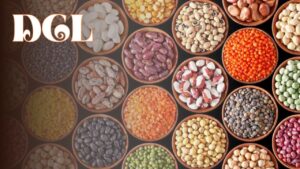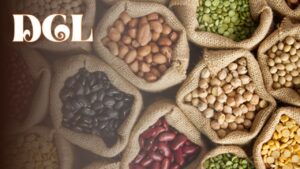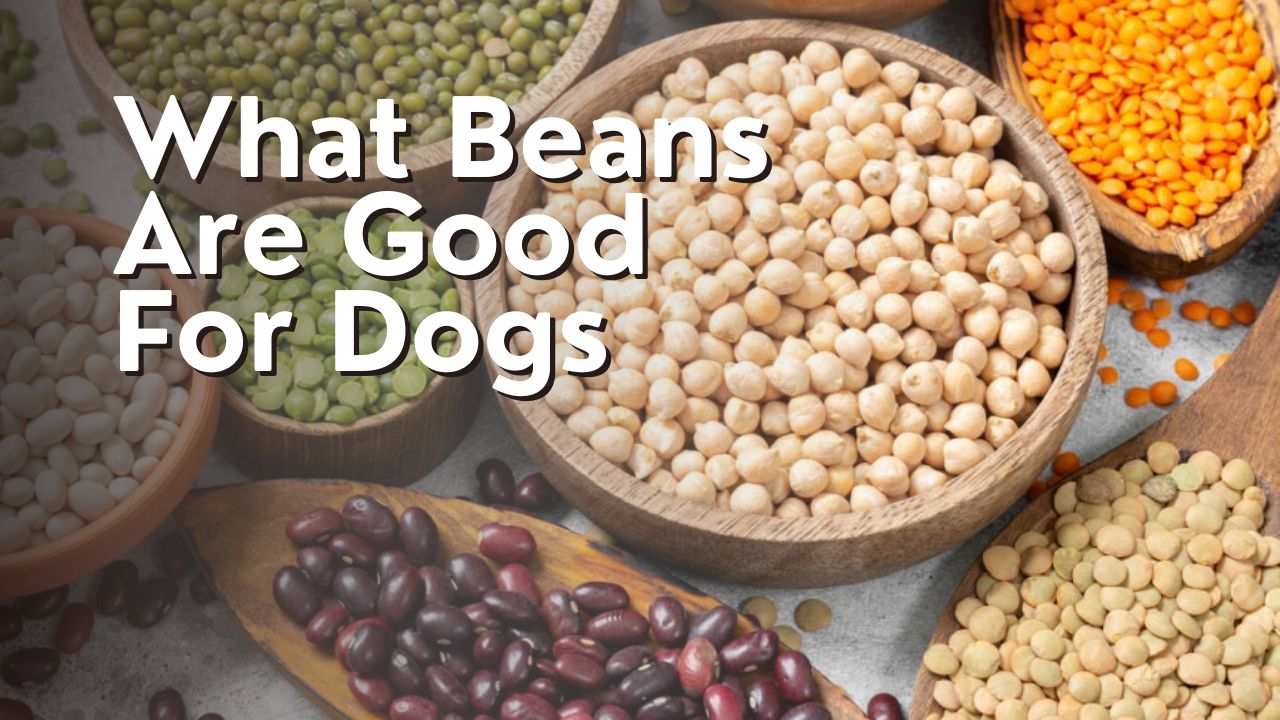In this article, I will explore the topic of what beans are good for dogs. As a dog owner, I am always looking for ways to provide my furry friend with a nutritious and balanced diet. Beans can be a great addition to their meals, offering a variety of health benefits.
However, it is important to know which types of beans are safe for dogs and how to properly prepare them. Let’s dive into the world of beans and discover how they can benefit our canine companions.
Types of Beans Safe for Dogs
There are several types of beans that are safe for dogs to eat. Beans are a great source of protein and fiber, which can be beneficial for dogs’ overall health. One type of bean that dogs can enjoy is green beans. They are low in calories and high in nutrients, making them a healthy addition to their diet. Green beans also contain antioxidants that can help boost their immune system.
Another type of bean that dogs can safely consume is black beans. These beans are packed with protein, fiber, and essential vitamins and minerals. They are also a good source of iron, which is important for dogs’ energy levels. However, it’s crucial to note that black beans should be cooked and mashed before feeding them to your furry friend.
Kidney beans are another safe option for dogs. They are high in protein and fiber, and also contain essential minerals like iron and potassium. However, it’s important to cook kidney beans thoroughly to remove any toxins that can be harmful to dogs.
In conclusion, there are several types of beans that are safe for dogs to eat, such as green beans, black beans, and kidney beans. Just remember to cook them properly and avoid adding any seasonings or additives that can be harmful to your furry friend.

Health Benefits of Beans for Dogs
Try incorporating beans into your dog’s diet to promote their overall health. Beans provide several health benefits for dogs, making them a great addition to their meals.
Firstly, beans are a good source of fiber, which can help regulate your dog’s digestion. This is especially beneficial for dogs with sensitive stomachs or those prone to constipation. The fiber in beans can also help maintain a healthy weight by promoting feelings of fullness and preventing overeating.
In addition, beans are rich in vitamins and minerals that are essential for your dog’s overall well-being. They contain important nutrients like folate, iron, magnesium, and potassium, which can help support your dog’s immune system, maintain healthy bones, and aid in proper muscle function.
Furthermore, beans are a great source of plant-based protein, which is important for your dog’s muscle growth and repair. Protein is crucial for maintaining a strong immune system and supporting healthy skin and coat.
When incorporating beans into your dog’s diet, it’s important to start slowly and monitor their reaction. Some dogs may have difficulty digesting beans, so it’s best to introduce them gradually and in small amounts.
Overall, beans can provide numerous health benefits for dogs, so why not give them a try and see the positive impact it can have on your furry friend’s well-being?
Preparing Beans for Dogs
When it comes to preparing beans for my furry friend, I always make sure to use the right cooking and soaking methods to ensure they are easily digestible.
I also avoid using any seasonings or additives that could potentially be harmful to my dog’s health.
Lastly, I pay close attention to the serving sizes to make sure I am giving my dog the right amount of beans for their size and individual dietary needs.
Cooking and Soaking Methods
To properly cook and soak beans for your furry friend, you should start by rinsing them thoroughly. This helps remove any dirt or residue that may be on the beans. After rinsing, you can choose from different cooking and soaking methods to make the beans more digestible for your dog.
Here are four methods you can try:
- Overnight Soaking: Place the beans in a bowl and cover them with water. Let them soak overnight, which helps soften the beans and reduce the cooking time.
- Quick Soaking: Bring a pot of water to a boil and add the beans. Boil for a few minutes, then remove from heat, cover, and let them soak for an hour.
- Pressure Cooking: Using a pressure cooker can significantly reduce the cooking time. Follow the manufacturer’s instructions for cooking beans in a pressure cooker.
- Canned Beans: If you’re short on time, you can use canned beans. Just make sure to choose varieties without added salt or seasoning.
Remember, always consult with your veterinarian before introducing new foods into your dog’s diet.
Avoiding Seasonings and Additives
Avoid using seasonings or additives when cooking beans for your furry friend. Dogs have sensitive stomachs, and many seasonings and additives can be harmful to them. Stick to plain, unseasoned beans to ensure your dog’s safety and health.
When preparing beans, opt for simple cooking methods like boiling or steaming. Avoid using oil or butter to cook the beans, as these can add unnecessary fats and calories to your dog’s diet. Additionally, be cautious of any seasonings or spices you might be tempted to add. Garlic and onion, for example, can be toxic to dogs and should be avoided completely.
Remember, simplicity is key when it comes to cooking beans for your canine companion.
Serving Sizes
Portion sizes for serving beans to your pup should be carefully considered to ensure their health and safety. Dogs have different nutritional needs compared to humans, so it’s important to feed them the right amount. The table below provides a general guideline for serving sizes of different types of beans based on the size of your dog:
| Dog Weight | Small Breeds (0-20 lbs) | Medium Breeds (21-50 lbs) | Large Breeds (51+ lbs) |
|---|---|---|---|
| 5 lbs | 1-2 tablespoons | 2-3 tablespoons | 3-4 tablespoons |
| 20 lbs | 2-3 tablespoons | 3-4 tablespoons | 4-5 tablespoons |
| 50 lbs | 3-4 tablespoons | 4-5 tablespoons | 5-6 tablespoons |
| 100 lbs | 4-5 tablespoons | 5-6 tablespoons | 6-7 tablespoons |
Remember, these serving sizes are just a starting point. It’s important to monitor your dog’s weight and adjust the portion accordingly. Additionally, always introduce new foods gradually and consult with your veterinarian for personalized recommendations.
Incorporating Beans into Your Dog’s Diet
Including beans in your dog’s diet can provide them with added fiber and essential nutrients. Not only are beans a great source of protein, but they also contain vitamins and minerals that are beneficial to your furry friend. Here are five ways you can incorporate beans into your dog’s diet:
- Mash them up and mix them with their regular food to add some texture and taste.
- Make homemade dog treats using pureed beans as a base ingredient.
- Add cooked and mashed beans to their meals as a healthy filler.
- Use beans as a topping for their food to add some extra flavor and nutrients.
- Mix cooked beans with other dog-friendly ingredients to create a nutritious homemade meal.
Remember to introduce beans gradually into your dog’s diet and monitor their reaction. Some dogs may have difficulty digesting certain types of beans, so it’s important to start with small amounts and observe any changes in their stool or behavior. Always consult with your veterinarian before making any significant changes to your dog’s diet.
By incorporating beans into their meals, you can provide your dog with a well-rounded and nutritious diet.

Considerations and Precautions
When introducing beans into your dog’s diet, it’s important to consult with your veterinarian to ensure it is done safely and effectively. While beans can be a nutritious addition to your dog’s meals, there are some considerations and precautions to keep in mind.
Firstly, not all beans are safe for dogs to consume. Certain varieties, such as kidney beans, can be toxic if not cooked properly. It’s crucial to thoroughly cook beans before feeding them to your furry friend to ensure any harmful substances are eliminated. Additionally, avoid seasoning the beans with any ingredients that are toxic to dogs, such as garlic or onions.
Another important consideration is the portion size. Beans should be incorporated into your dog’s diet in moderation. Too many beans can lead to digestive issues like gas or upset stomach. It’s best to start with small amounts and gradually increase the portion size over time, while monitoring your dog’s reaction.
Lastly, be aware of any allergies or sensitivities your dog may have. Some dogs may have an adverse reaction to beans, experiencing symptoms like itching, vomiting, or diarrhea. If you notice any negative effects, it’s important to discontinue feeding beans and consult with your vet.
By following these considerations and precautions, you can safely introduce beans into your dog’s diet and provide them with an additional source of nutrition.
Frequently Asked Questions
Can dogs eat all types of beans?
Dogs can eat some types of beans, but not all. It’s important to avoid giving them beans that are seasoned, canned, or contain onions or garlic. Stick to plain, cooked beans in moderation.
Are canned beans safe for dogs?
Canned beans can be safe for dogs as long as they are plain and free from added salt, seasonings, and preservatives. However, it’s always best to consult with a veterinarian before introducing any new food to your dog’s diet.
How much beans should I feed my dog?
I should feed my dog beans in moderation. It’s important to consider their overall diet and consult with a veterinarian. They can guide me on the appropriate amount of beans based on my dog’s weight and specific dietary needs.
Can beans cause digestive issues in dogs?
Beans can cause digestive issues in dogs. It’s important to introduce them gradually and monitor their reaction. Some dogs may have trouble digesting beans due to their high fiber content.
Are there any beans that are toxic to dogs?
Yes, there are a few beans that are toxic to dogs. For example, kidney beans contain a toxin called lectin that can cause vomiting, diarrhea, and even kidney failure in dogs.
Conclusion
In conclusion, beans can be a great addition to your dog’s diet. They’re safe and offer numerous health benefits. They provide a good source of fiber, protein, and essential nutrients.
However, it’s important to prepare and cook the beans properly to ensure they’re easily digestible for your furry friend. It’s crucial to introduce beans gradually into your dog’s diet and monitor for any adverse reactions.
As always, consult with your veterinarian before making any significant dietary changes for your dog.


